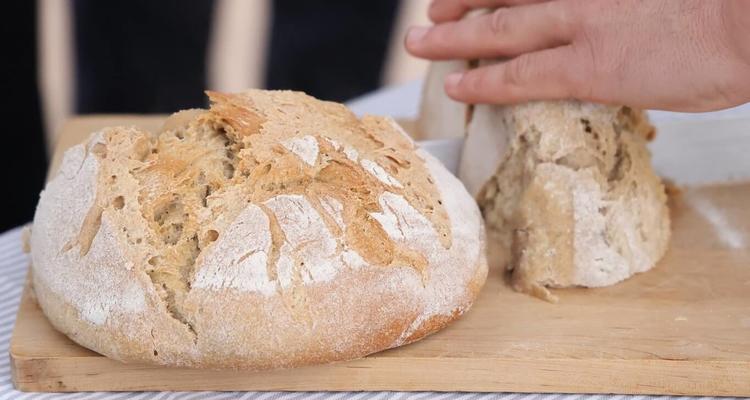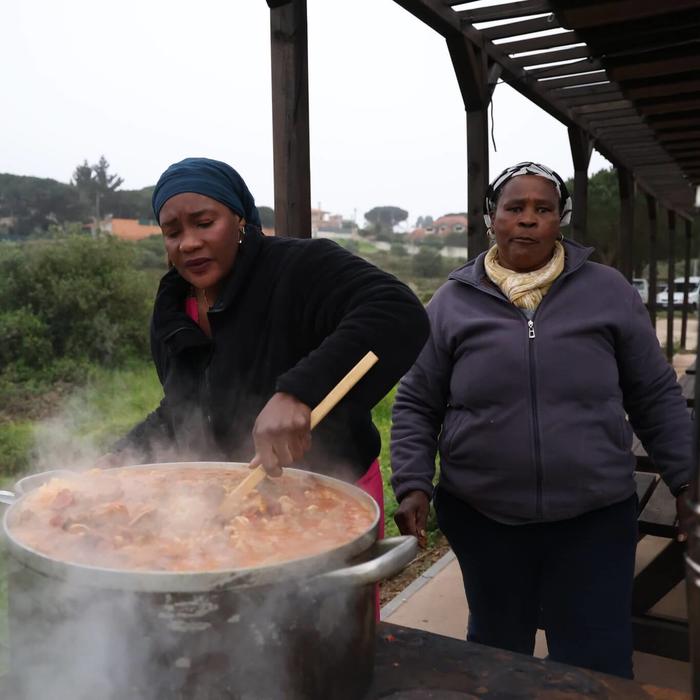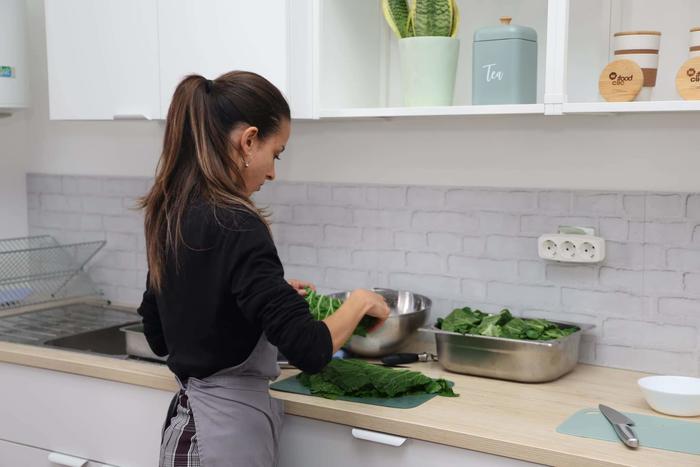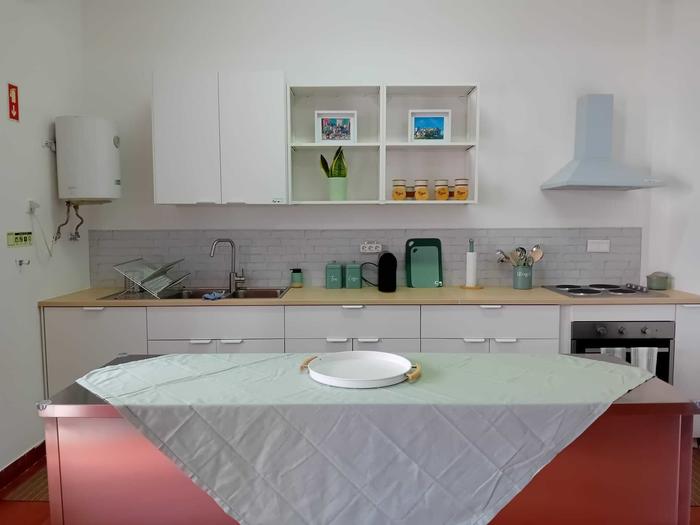
Community Kitchen and Oven in Cascais: Healthy, Sustainable Food and Stronger Community Connections
In the Lisbon Metropolitan Area, the FoodCLIC project is centred in Cascais, with a particular focus on the ‘Adroana’ and ‘Cabeço de Mouro’ neighbourhoods. On site, the project connects food policies with tangible actions with the aim to replicate them across all 18 municipalities of the Metropolitan Area.
In a collaborative planning process, the local community, local associations, and key stakeholders identified the need to establish a Community Oven and Community Kitchen. These shared spaces will be used by different initiatives, encouraging sustainable and healthy practices, while fostering social cohesion.
In addition, in Cascais, FoodCLIC project partners will also provide food baskets to vulnerable families, promote food literacy initiatives, and establish marketing gardens “Hortas Ninho”. All of these measures and initiatives are part of a broader action plan that aims to create synergies between what we call in project jargon the FoodCLIC ‘real-life interventions’.
Community spaces for urban sustainability
This focus was placed on the creation of Community Spaces to address pressing global challenges, such as food security and environmental sustainability, while also fostering social inclusion. By creating spaces for social interaction and food education, the initiative strengthens the urban food system, making it more resilient and equitable.
In the Cabeço de Mouro neighbourhood (Cascais), optimizing the Community Kitchen was identified as a key step in reinforcing the local food system. This now fully equipped kitchen includes facilities for show cooking and cooking lessons, communal dining, and various food literacy activities, offering a versatile space for education and engagement. Meanwhile, in the Adroana neighbourhood, the establishment of a Community Oven provides a complementary solution, promoting food sustainability and social inclusion. With approximately 200 m², this multifunctional space is located near the community vegetable garden and features a lounge area, barbecue stations, a traditional wood-burning oven and a woodstove.


Food as a tool to foster social cohesion
With this targeted real-life intervention, the Portuguese FoodCLIC partners aim to create a lasting and meaningful impact on the local community, centred around four key pillars:
- enhancing urban food resilience by strengthening local food systems to better withstand climate change and ensuring fair access to healthy, sustainable food for all;
- promoting sustainability through the support of biological agriculture and short distribution chains to reduce environmental impact;
- fostering social cohesion by using food as a tool to strengthen community connections and promote social inclusion, with shared spaces acting as hubs for integration, intergenerational knowledge exchange, and the celebration of cultural diversity through gastronomy; and
- advancing food and climate literacy by co-creating a learning agenda with the community that includes training, capacity-building initiatives, and active participation in global climate action, while encouraging informed food choices.
In addition to hosting scheduled activities, these spaces will be available for residents to use independently, further encouraging the exchange of experiences and the strengthening of social bonds.


Community needs as a priority
From the beginning of the project, it was seen as a priority to identify the community’s needs through workshops, strategy meetings, and. The Community Kitchen and Oven have been designed in direct response to these discussions, ensuring alignment with the community’s expectations and aspirations.
The inauguration of the Adroana Community Oven featured the baking of Barbela wheat bread, reviving traditional food practices, and the preparation of Cachupa, a traditional Cape Verdean dish that celebrates the neighbourhood’s cultural diversity. Meanwhile, at the Cabeço de Mouro Community Kitchen, the opening event included a show of cooking by the FoodLab Cascais, using fresh products from the municipality's vegetable gardens.
These activities marked the beginning of the co-creation of Learning Agendas for both neighbourhoods, tailored to their specific needs. For example, In Adroana, training sessions will be offered to teach residents how to use the wood-fired oven. Meanwhile, in Cabeço de Mouro, food literacy initiatives will be coupled with the distribution of food baskets, encouraging creative and sustainable ways to use the ingredients while promoting zero waste.
Simultaneously, regulations for both spaces are being prepared jointly, ensuring their proper maintenance, particularly when used independently by the community.
Ensuring lasting, tangible change
In order for these spaces to be used by the community in the long term, key challenges need to be overcome. This includes fostering ongoing community engagement by ensuring that the spaces are used regularly and that all age groups and social segments remain actively involved to encourage long-term participation. Partnerships are crucial, particularly the engagement of stakeholders that can support food literacy actions. Finally, robust mechanisms for monitoring and evaluating the project's impact will need to be implemented, enabling continuous refinement of strategies and ensuring that the initiatives lead to lasting, tangible change while offering a model that can be taken as an example by other communities.
- Written by our guest author and consortium member Rita Marau (Empresa Municipal de Ambiente de Cascais)

Publishing date:
FOODCLIC. We are connecting people, food, policy & places.
FoodCLIC is a four-year project funded by the EU. The project runs from September 2022 to February 2027. The acronym FoodCLIC stands for 'integrated urban FOOD policies – developing sustainability Co-benefits, spatial Linkages, social Inclusion and sectoral Connections to transform food systems in city-regions

